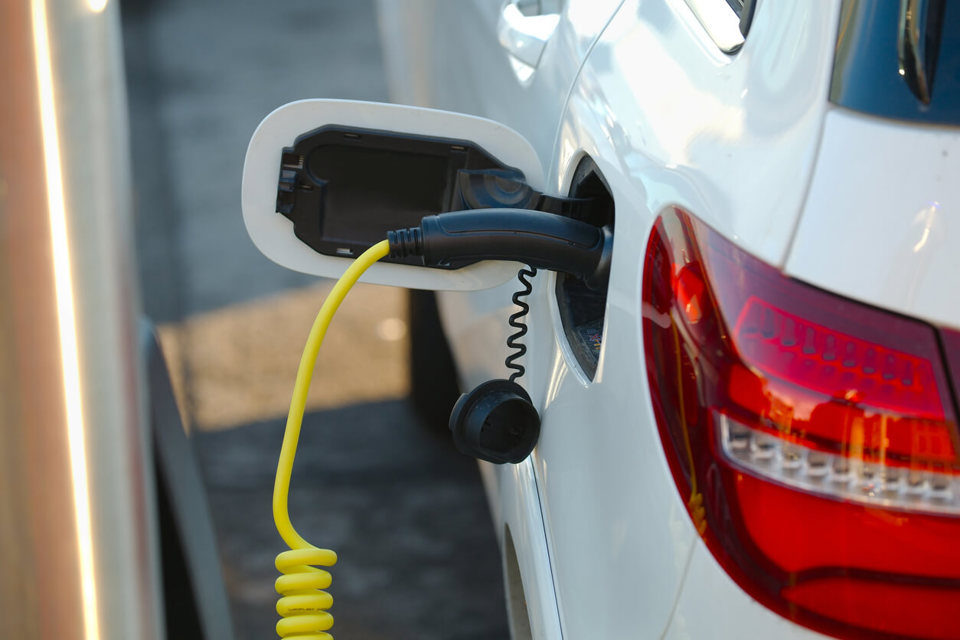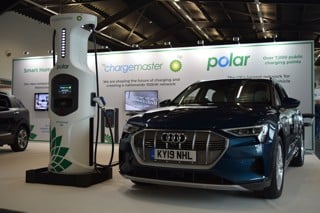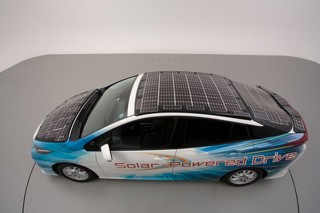The Government has awarded £37 million to 12 projects aimed at transforming the way electric vehicles (EVs) are charged.
The successful schemes include, companies developing ‘pop-up’ EV chargepoints and using high speed internet connections to charge EVs.
Urban foresight has been awarded more than £3m to develop the pop-up chargers, which are built into the pavement to provide a charging solution for EV drivers with no off-street parking.
The wifi project aims to leverage existing Virgin Media physical and online infrastructure to deliver charging for EVs, using high speed internet connections to better share information online on charging progress and parking spaces
Further projects to receive funding include: installing chargepoints in car parks to allow for mass charging at night; and a storage and advanced electronics project that will deliver semi-rapid charging using a low power grid connection minimising the need for costly substation upgrades.
Chargy has also been awarded more than £2.3m to deploy wireless charging technology on residential streets without the need for trailing cables and additional infrastructure.
Initial three-month feasibility studies have been completed and successful projects are moving onto the next stage of development.
Future of mobility minister, Michael Ellis, said: “We’re charging up the transport revolution and investing in technologies to transform the experience for electric vehicle drivers.
“Ensuring the charging infrastructure for electric vehicles is reliable and innovative is encouraging more people to join the record numbers of ultra-low emission vehicle users already on UK roads.”
The funding announcement marks the one-year anniversary of the Government’s Road to Zero strategy, which sets out new measures to clean up road transport and lead the world in developing, manufacturing and using zero emission road vehicles.
Through funding these projects, the Government says it is incentivising drivers to move towards buying EVs, supporting the key aims of the strategy.
Richard Stobart, CEO of Chargy, said: “Our consortium is delighted to be funded by Innovate UK to demonstrate induction charging on residential streets in Milton Keynes, the London Borough of Redbridge and Buckinghamshire County.
“Working in collaboration with the Open University and The University of Warwick’s WMG we are excited to show that our ability to retrofit to existing electric vehicles and enable several parking bays per lamp column without the need for cables will accelerate the uptake of electric vehicles.”
Keith Johnston, co-founder of Urban Electric, said: “On behalf of the ‘Clean Streets’ consortium we are delighted to be a winner in the Innovate UK Electric Vehicle Charging For Public Spaces competition.
“Together with our partners Urban Foresight, Co-wheels, Duku and Appy parking we look forward to demonstrating Urban Electric’s pop-up charging hubs in Dundee and Plymouth and to bringing residential on-street charging for the 50% of people that park on-street at night in cities one step closer to reality.”
The funding announcement comes after poor registrations for alternative fuel vehicles (AFVs) in June.
Pure electric vehicles were up 61.7%, but plug-in hybrids continued the recent downward trend, falling by a 50.4%, while hybrids also fell, by 4.7%.
The performance tipped the overall alternatively fuelled vehicle sector into negative growth for the first time since April 2017.
Sebastian Speight, managing director of Infrastructure at Ingenious, said: “There is a justifiable concern about the drag on the adoption of electric vehicles in the UK due to the limits on the speed of rolling out the associated charging infrastructure.
"There are currently a number of market participants developing and implementing strategies for rolling out charging infrastructure but there is also a reasonable degree of uncertainty about the future patterns of consumer behaviour which creates a level of risk in these business models which has a closer fit with strategic or venture capital rather than more traditional infrastructure capital.
"These uncertainties are around the technology type (AC versus DC), charging location and fear of stranded assets and convergence of operating systems. A closer involvement from public stakeholders should enable greater visibility on these risks and increase the availability of private capital.”
The Government announcement comes as the British Vehicle Rental and Leasing Association (BVRLA) marks the anniversary of its own zero-emission vehicle initiative, the BVRLA Plug-in-Pledge, which committed the vehicle leasing, rental and car club industry to making 300,000 plug-in vehicle registrations per year in 2025.
BVRLA director of external relations, Toby Poston, said: “The pledge we launched last July saw us commit to increase the BVRLA’s combined plug-in fleet from 50,000 vehicles to 720,000 in 2025.
"We are pleased to report that we are on track, with growth of 40% taking the combined fleet to 70,000 plug-in vehicles by the end of 2018.
“The Government acknowledges the vital role our industry plays in delivering cleaner road transport. BVRLA members are currently responsible for around 35% of the UK’s plug-in electric vehicles, but this figure can be far greater with the right incentives and support for fleets.
“Our recent Road to Zero Report Card report set out a number of recommendations to government on charging infrastructure. These included providing more funding and support to eliminate the UK’s rapid public charge point ‘blackspots’ and the need to mandate universal methods of access and payment.”























Login to comment
Comments
No comments have been made yet.